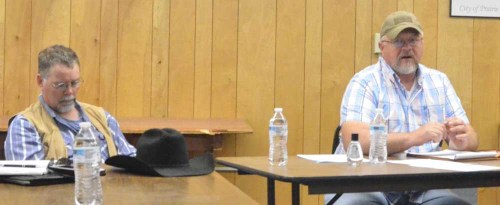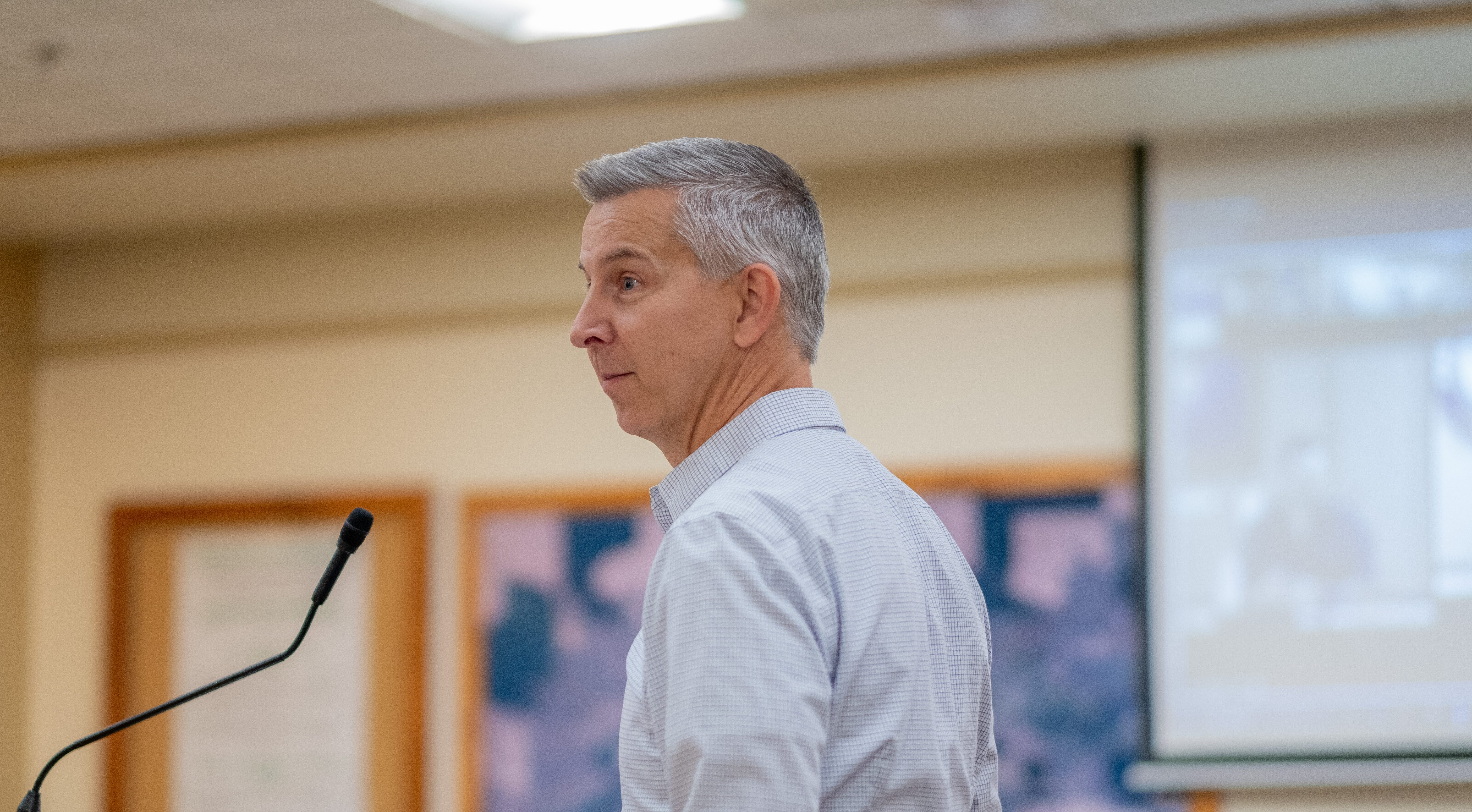Our view | County officials blunder with meeting
Published 5:00 am Tuesday, June 16, 2020

- Grant County Commissioner Sam Palmer, left, listens as Lake County Commissioner Mark Albertson discusses the impacts of Gov. Kate Brown’s reopening plans to his community Thursday in Prairie City. The meeting, which was not announced to the public, was organized by Albertson.
A good opportunity to debate and seek solutions regarding the impact of Gov. Kate Brown’s COVID-19 restrictions in Eastern Oregon was missed last week when top elected leaders from seven counties staged an unannounced meeting in Prairie City.
Ostensibly, the meeting was labeled an “information seminar” and was organized by Lake County Commissioner Mark Albertson. At its base, the aim of the meeting — to discuss what is perceived as a disconnect between Brown’s administration, the state health care authority and rural residents — was a good one. Clearly there does exist a chasm of misunderstanding between the governor’s actions regarding COVID-19 and how those decisions impacted rural communities. Elected lawmakers should, indeed, convene to discuss and debate the concerns of their constituents.
Trending
The problem — and make no mistake, it is a problem — is the session was essentially planned and, initially, executed in secret. The meeting was not announced to the public. There was no agenda released through area newspapers informing voters of the purpose of the meeting. That means, then, that duly elected leaders — regardless of their motives — thought it proper to meet and discuss important issues without allowing their bosses — the voters — know about it.
For most on the lunatic fringe of the political spectrum across our nation — and in Eastern Oregon — such niceties are not that big a deal. Who cares, the thinking may go, if a group of elected leaders meet in secret and discuss issues that are pertinent? If the problem gets solved, it doesn’t matter.
The challenge to that type of thinking is it doesn’t fit the philosophy of a democratic government. Regardless of the issue, despite what may or may not splash across the front pages or the television screen, democracy and its rules endure. Democracy does not pardon secrecy with elected officials.
Elected leaders can — as is often the case today — throw up all sorts of political smoke, point fingers and sprinkle a little fiery dogma on the issue for good measure, but it isn’t deceiving to the discerning voter. Bottom line is, elected leaders should never meet in secret.
Instead of adopting a Star Chamber-like method, these same elected leaders could have chosen a different route. Why not form the same type of union — in the open — and seek redress from the governor? Why not band together and go public with their concerns as a group? Why not seek an audience with the governor to debate their concerns?
All good questions. And they deserve answers, not political sleight of hand and secret sessions.









